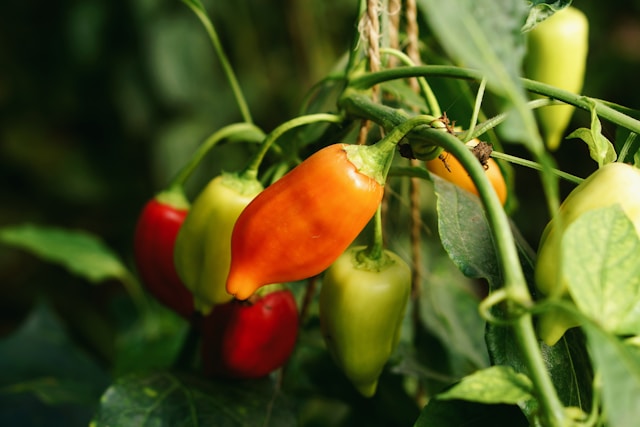6 Impressive Health Benefits of Chilli Leaves You Should Explore

Chilli leaves (Capsicum annuum) often take a back seat to their fiery fruit, but these nutrient-rich greens deserve a closer look. Packed with antioxidants, vitamins, and anti-inflammatory properties, chilli leaves have long been valued in traditional medicine and are a versatile addition to your diet.
Whether used in soups, teas, or stir-fries, these leafy greens can enhance your meals and your health.
1. High in Antioxidants
Chilli leaves are a powerhouse of antioxidants, including vitamins A and C.
- Vitamin C: Just 100 grams of fresh chilli leaves offer around 9 milligrams of vitamin C, which supports immune health and fights oxidative stress.
- Antioxidants in chilli leaves help neutralize free radicals, reducing the risk of chronic diseases like heart disease and certain cancers.
Adding chilli leaves to your meals can provide a nutrient boost to protect your cells and maintain overall health.

2. Natural Anti-Inflammatory Properties
The flavonoids and alkaloids found in chilli leaves have significant anti-inflammatory effects.
- Chronic inflammation, a contributing factor to conditions like arthritis and muscle pain, can be alleviated with these natural compounds.
- Research published in the Journal of Ethnopharmacology indicates that chilli leaves may help reduce inflammation and associated discomfort.
Incorporating chilli leaves into your diet may help manage inflammation and promote joint and muscle health.

3. Promotes Healthy Digestion
Chilli leaves have been used traditionally to ease digestive issues like bloating, constipation, and indigestion.
- These leaves stimulate the production of digestive enzymes, improving food breakdown and nutrient absorption.
- Their fiber content promotes regular bowel movements and supports gut health.
A study in the Journal of Medicinal Plants suggests that chilli leaves can enhance gut function and support a healthy digestive system.

4. Supports Skin Health
Rich in vitamin C and antioxidants, chilli leaves can do wonders for your skin.
- Vitamin C: Promotes collagen production, which keeps skin firm and youthful.
- Antioxidants help repair skin cells, reduce wrinkles, and protect against UV damage.
According to the Journal of Clinical and Aesthetic Dermatology, consuming antioxidant-rich foods like chilli leaves can improve skin texture and promote a radiant complexion.

5. Boosts Heart Health
Chilli leaves contribute to cardiovascular health by improving circulation and reducing harmful cholesterol levels.
- Flavonoids in chilli leaves help prevent plaque buildup in arteries, reducing the risk of heart disease.
- Regular consumption may also support healthy blood pressure, as suggested by research in the Journal of Cardiovascular Pharmacology.
For a heart-healthy diet, consider incorporating chilli leaves into your meals or brewing them into a tea.

6. Helps Regulate Blood Sugar Levels
Chilli leaves may assist in maintaining balanced blood sugar levels, particularly for those managing diabetes.
- Compounds in these leaves have been shown to enhance insulin sensitivity and reduce sugar spikes.
- Research in the Journal of Ethnopharmacology highlights their potential role in blood sugar regulation.
While more studies are needed, adding chilli leaves to your diet could be a simple way to support stable glucose levels.

How to Use Chilli Leaves in Your Diet
Chilli leaves are versatile and easy to prepare:
- Soups and stews: Add them to broths, curries, and stews for added flavor and nutrients.
- Chilli leaf tea: Steep fresh leaves in hot water for 5–10 minutes. Add honey or lemon for a soothing drink.
- Salads: Chop fresh leaves and mix them into your favorite salads.
- Stir-fries: Sauté with olive oil, garlic, and vegetables for a quick and nutritious side dish.

Cautions and Precautions
While chilli leaves are generally safe, here are some things to keep in mind:
- Allergies: If you experience itching, swelling, or difficulty breathing after consumption, discontinue use and consult a healthcare provider.
- Moderation: Overconsumption may cause digestive discomfort or irritation.
- Pregnancy and breastfeeding: Consult a healthcare provider before adding chilli leaves to your diet during these periods.
Disclaimer:
This article is for informational purposes only and is not a substitute for professional medical advice. Always consult your healthcare provider before making significant dietary changes, especially if you have existing health conditions or take medications.